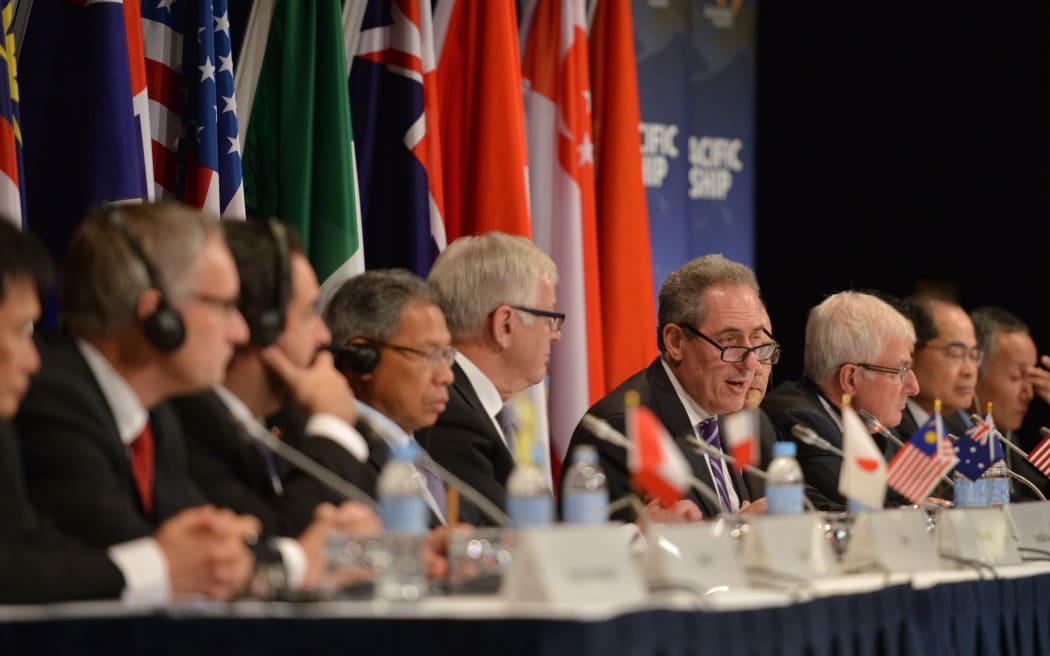An American lawyer is dismissing fears the proposed Trans Pacific Partnership (TPP) will allow multinational companies to undermine domestic interests.

International trade representatives at a press conference for the TPP in Sydney in 2014. Photo: AFP / FILE
Investor-state dispute clauses being considered for the proposed trade deal allow such companies to sue governments if they lose profits as a result of new domestic regulation.
But Gary Born, who specialises in international commercial arbitration, told Radio New Zealand's Sunday Morning critics of the TPP should not be concerned about sovereign governments being overruled.
"States, when they negotiate international agreements, pay close attention to their domestic and other constituencies," he said.
"[They] take those concerns into account in order precisely to balance the concerns - on the one hand, of trade, and on the other hand, environment, public health and other matters."
The TPP is being negotiated between 12 countries, including New Zealand, Australia, Japan and the US.
It hit a stumbling block last week when the US Senate voted not to open debate on giving President Barack Obama so-called trade promotion authority to fast-track the deal.
However, there have since been reports of a compromise deal.

